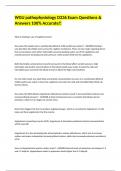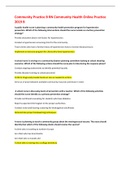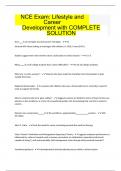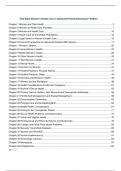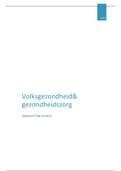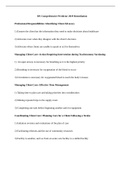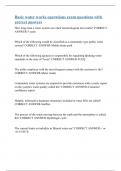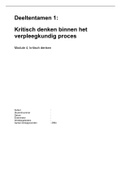Summary
Summary History: Topic 2 (Independent Africa, the Congo, Tanzania and Angola)
- Course
- History
- Institution
- HeronBridge College
The whole of topic 2 including The Congo, Tanzania and Angola. It is a detailed summary and study guide for the topic. This section falls under Paper one of the IEB history matric paper. I used the New generation textbook along with two study guides and extra notes.
[Show more]




